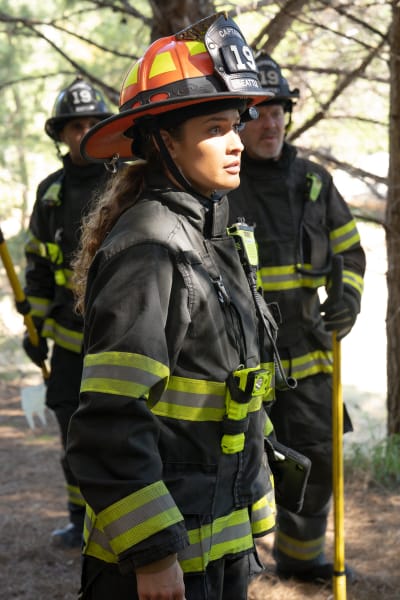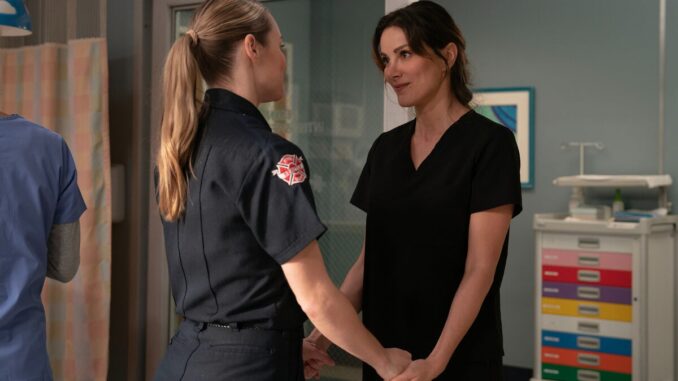
Station 19 knows how to bring the pain, the laughter, and, yeah, even some frustration.
We got a healthy dose of all of the above with Station 19 Season 7 Episode 7, which was the epitome of a rollercoaster ride because they’d have you chuckling one minute and sniffling the next.
No one will ever accuse this series of not bringing all the emotions.
While they balanced out a couple of different things, Carina and Maya were at the forefront for the most part.
With Carina, they revisited the lawsuit that Wendy filed against her for the health issues her child faced, and with only a couple of installments of the series remaining, we needed that follow-up.
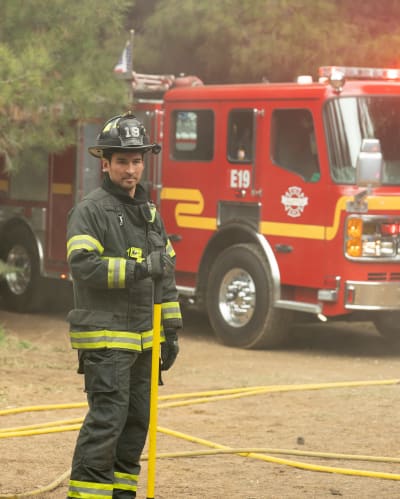
When they introduced that plot during Station 19 Season 7 Episode 2 , I wondered how they could address it again and wrap things up when the season has visibly shown signs of scrambling to land because of this unexpected cancelation.
Considering the circumstances, they managed to wrap things up well enough. The conclusion was as abrupt as the introduction, with Carina being an unapologetic albeit sympathetic badass who genuinely wanted to do right by Wendy.
As frustrating as it was that Wendy sued Carina over something that was out of her control, we’re meant to sympathize with the desperation of a single mother with a disabled child and all that financial and emotional strain that places on her regardless of how much she loves and appreciates her daughter.
Even when Wendy commented to Carina, gaslighting her into feeling shame as she misdirected all her ire and frustration toward Carina, one could understand the emotion behind that.
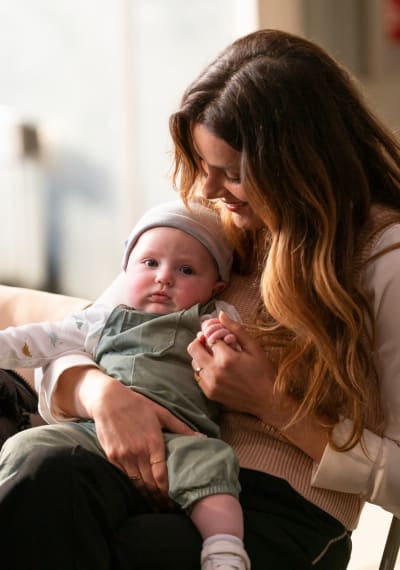
And so could Carina. She felt for Wendy, but she didn’t let that ruin her or take up space in her head any longer than it did before. And that’s great progress for Carina.
She had no hard feelings toward this woman when she left that room. It felt like that was the end, and Carina was simply content with returning to practicing medicine and being with her family. She’s found solace in that.
And maybe there’s some growth in her not taking another second to defend herself or try to parse through the situation.
The woman who spent much of her life as a caretaker to her own family cut right to the heart of what Wendy was dealing with and wanted to address that head-on and give her real help she could use.
She left the ball in Wendy’s court and moved on.
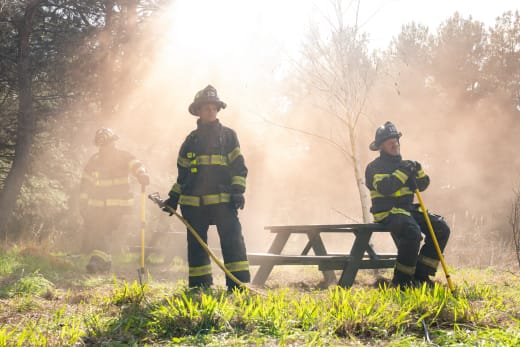
Maya had to practice moving on as well.
The Maya and Mason storyline is tricky for me. I have two thoughts regarding it, so I’ll have to speak about both of them.
For starters, Danielle Savre did some fantastic work yet again. When she gets those emotional scenes, she knocks them out of the park, holds your attention, and leaves you struck by what’s transpiring onscreen.
Maya’s scenes with Mason were distressing and emotional. It was difficult to hear this man utter such hateful things and direct them at his own flesh and blood.
It was so uncomfortable and painful, and it evoked many emotions.
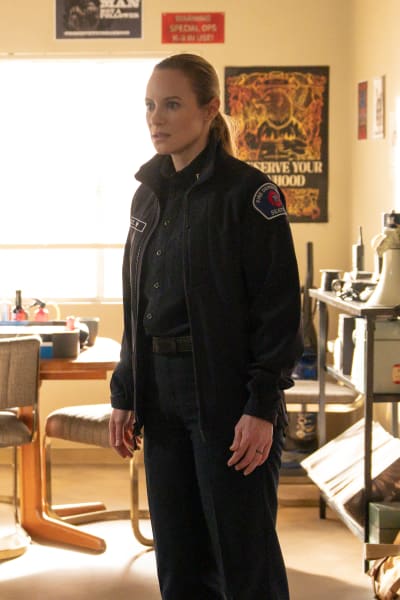
Station 19 has always been about representation and telling real and raw stories. It’s done that on many levels. It was another instance of them leaning heavily into a not at all unique or uncommon queer experience.
Maya had to face down her bigoted brother and deal with the conflicting feelings of loving someone. She also had to instill boundaries upon recognizing that it’s for one’s own safety and peace of mind to let that person go and cut ties.
It’s been something discussed before — this quiet epidemic of young white men who are indoctrinated and preyed upon as they’re lured into militias and hate groups.
On paper, Mason is a prime candidate for something like that, so it’s not an entirely unexpected path for someone like him to have taken.
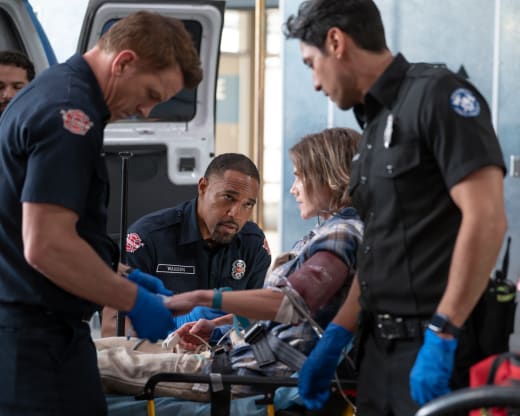
He’s a character woven into the series’ fabric but mostly in the shadow, looming over Maya as this subject that needs to be revisited and addressed.
Sadly, Maya’s heartbreaking experience with her brother isn’t uncommon, and she gave a voice to people who have had similar experiences with their own families.
My heart breaks for anyone who has endured that, just as it does for Maya.
Tangentinally, I can understand the angle here with this storyline and what they were showcasing via Maya.
We watched a woman who broke a cycle after years of cultivating her own family via Nineteen, specifically Carina and now Liam. She had to learn how to be loved and know how to show it, and that has been something that’s been years in the making.
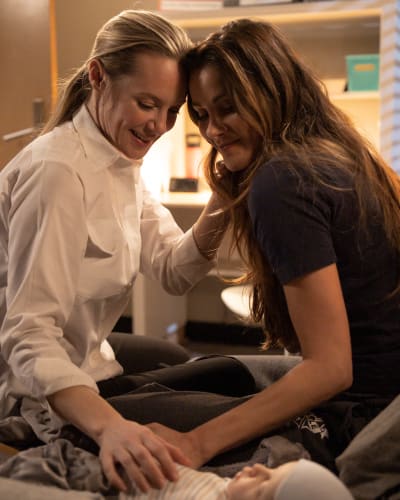
It took literal years for her to unlearn some of the habits and thought processes instilled in her by her abusive father. It took even longer for her to truly unpack her traumas and get the help she needed to be the best, healthiest version of herself.
When you’ve done that, you want to extend a hand back and help someone else do the same, especially someone you love who endured similar experiences.
It made perfect sense that a healed Maya Bishop would want to “save” her brother and put him on the right path. She gathered all of these tools and wanted to teach him how life could be on the other side of their crappy childhood.
She wanted to be that beacon of light and sense of hope that she got. And she put up a valiant effort to do that. Through her conversations with Mason, we see how much Maya has evolved over the years.
It was a way of seeing how life has served her well and just how great of a place she’s in. It’s like a progress check, seeing Mason’s brokenness reflecting back to her as she saw where she was compared to where she is now.
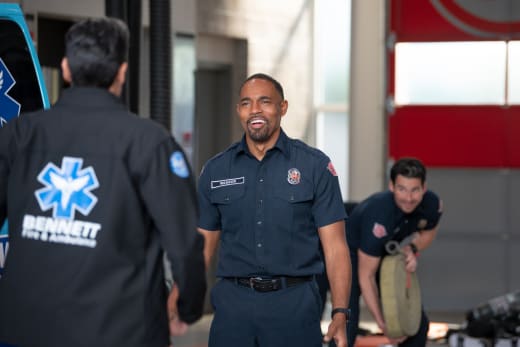
She even says how beautiful her life is, so when she desperately offered to have him move in with her and Carina (albeit without thinking about what Carina would’ve wanted), you know she wanted to be the family to Mason that they didn’t have when they were younger.
And maybe, in some way, she was trying to make it up to him that she couldn’t save him. Although, how could she rescue her brother when she didn’t get out unscathed either?
All of this naturally led to this powerful moment of Maya recognizing that she would not explain to her own brother why she’s human and that she can’t welcome that type of ignorance, hatred, and bad energy into her life no matter how much she loves him.
It was a powerful moment to have her stand up to him, assert herself, and call him out for being just like their bad father, arguably worse because he’s been at the brunt of such hatred and chooses to partake in it.
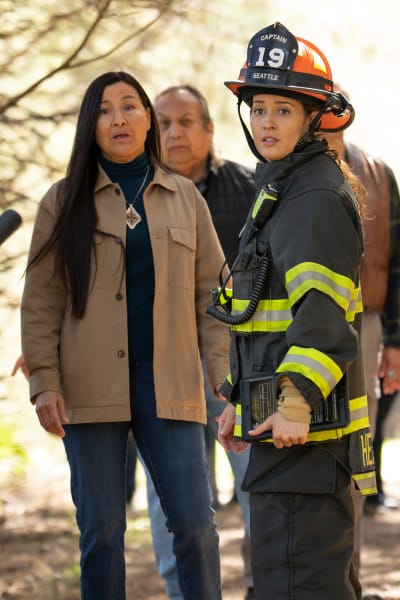
And again, her story with Mason is something that far too many people can identify with, and it is as upsetting as that is to consider.
I understand what that meant for Maya and how important it was for her to have this moment where her breakthrough in therapy and healing shone so brightly in the face of her past.
It was letting go of the last visages of the things that weighed her down and held her back.
And that’s a powerful message in itself that can inspire and resonate with many.
But I also was frustrated with this arc. Sometimes, it’s draining to give any semblance of bigotry and homophobia a platform.
It’s not that the reality of homophobia being part of a queer person’s story doesn’t deserve to be showcased because, obviously, it’s a reality.
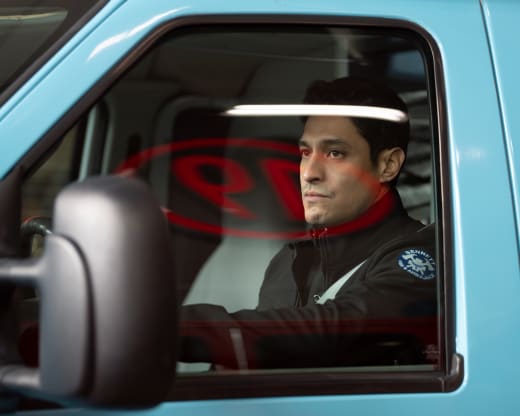
But on the flip side, sometimes, it’s nice not to have characters and viewers subjected to it so frequently. Maya’s father was a bigoted nightmare, and we explored that deeply. It was gratifying when she had the moment to stand up to him, and she cut him out of her life.
With everything going so well with Maya, it sucked that we had to revisit this angle again. It’s not the only experience worth exploring for queer characters, where they’re marred by crappy family members who don’t accept them.
Sometimes, it’s tiresome to see queer characters having to prove to others why they’re human and argue for their rights and their own humanity.
It’s something that I touched on during “We Build Than We Break” from a race perspective, something I can immediately identify with as a woman of color.
Sometimes, it’s flat-out exhausting when you must be subjected to these emotionally taxing, triggering storylines to prove a point or teach something to an audience that should know and do better.
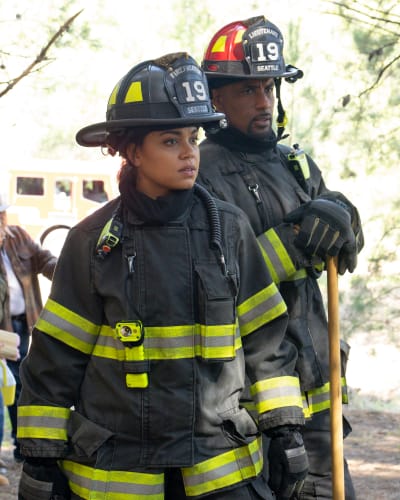
Sometimes, you don’t want the characters that resonate most with you to be constantly used as someone else’s lesson.
It was a powerful series of scenes and likely cathartic for some. But in the same breath, it’s grating when disenfranchised characters can’t just be.
Before her realization and assertion that she was cutting Mason out of her life, we spent a lot of time with her trying to “understand” his perspective and why he turned to a hate group and considers them family.
She spent an extraordinary amount of time trying to reason with her brainwashed brother and prove and defend her own existence.
She invited a brainwashed bigot into her home with her wife and child without even running that offer by Carina first, considering the risks or the emotional damage that could do to her having to share her home, the place she should feel most safe, with a man who has to unlearn his bigotry.
